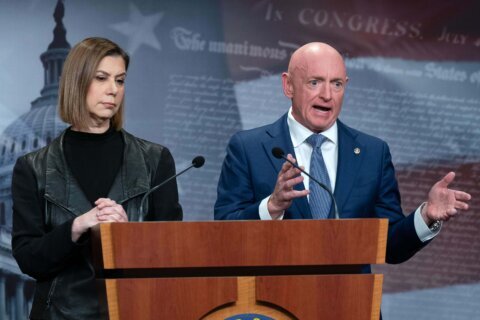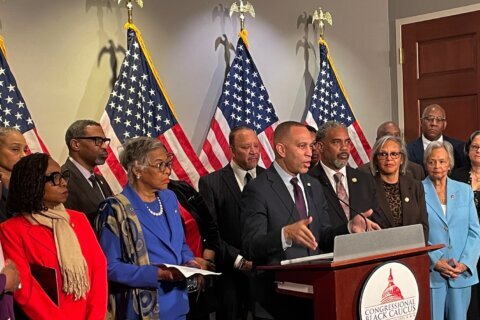WASHINGTON — Arizona Republican Sen. Jeff Flake took to the Senate floor to deliver a scathing rebuke of President Donald Trump’s attacks against the media — and media advocates are cheering the senator’s stand.
Trump’s frequent invocations against “fake news” are “shameful” and “repulsive,” Flake said Wednesday morning. The senator also said the president’s use of the phrase — “enemy of the people” — to describe the free press is “chilling” and reminiscent of Soviet dictator Josef Stalin.
Flake is a frequent Trump critic who has opted not to run for reelection this year.
How should journalists respond to the president’s charges of fake news?
Gene Policinski, chief operating officer of the Newseum Institute, said the most effective way for the press to rebut the charge is by simply continuing to do their jobs well.
“I think the worst thing that could happen is to become truly oppositional,” Policinski said on WTOP. “Again, the press’ role is not there to be a cheerleader — we are to ask the tough questions — but to fall into that role of responding, I think, is just a fool’s errand. I think by doing their job — that is, bringing people the news, as accurately and fairly as they can, that’s really the only ultimate remedy.”
Still, journalists’ jobs may be getting more difficult in an increasingly polarized media climate.
Overall, 70 percent of Americans said they think of spread of inaccurate information is a major problem with news coverage, according to a new Knight-Gallup survey. But just what constitutes fake news is less clear-cut. Per the survey, 40 percent of Republican survey respondents said accurate news stories that cast a politician or political group in a negative light should be considered fake news.
Policinski said that trend is dangerous for our democracy.
“We don’t have free speech so that we can grunt,” he said. “We have freedom of speech so ultimately we can talk to each other — sometimes very sharply, very pointedly, insulting each other — so that we arrive at the best possible solution for the greatest number of people. And when that inability to share common facts or even any kind of beliefs or structure goes away, we lose that essential part of democracy.”
For its part, the White House said Flake’s criticism of the president’s media rhetoric is “utterly ridiculous.” White House Press Secretary Sarah Huckabee Sanders said a the daily press briefing that Flake was “looking for some attention,” and that he was criticizing the president because Flake “has terrible poll numbers.”








